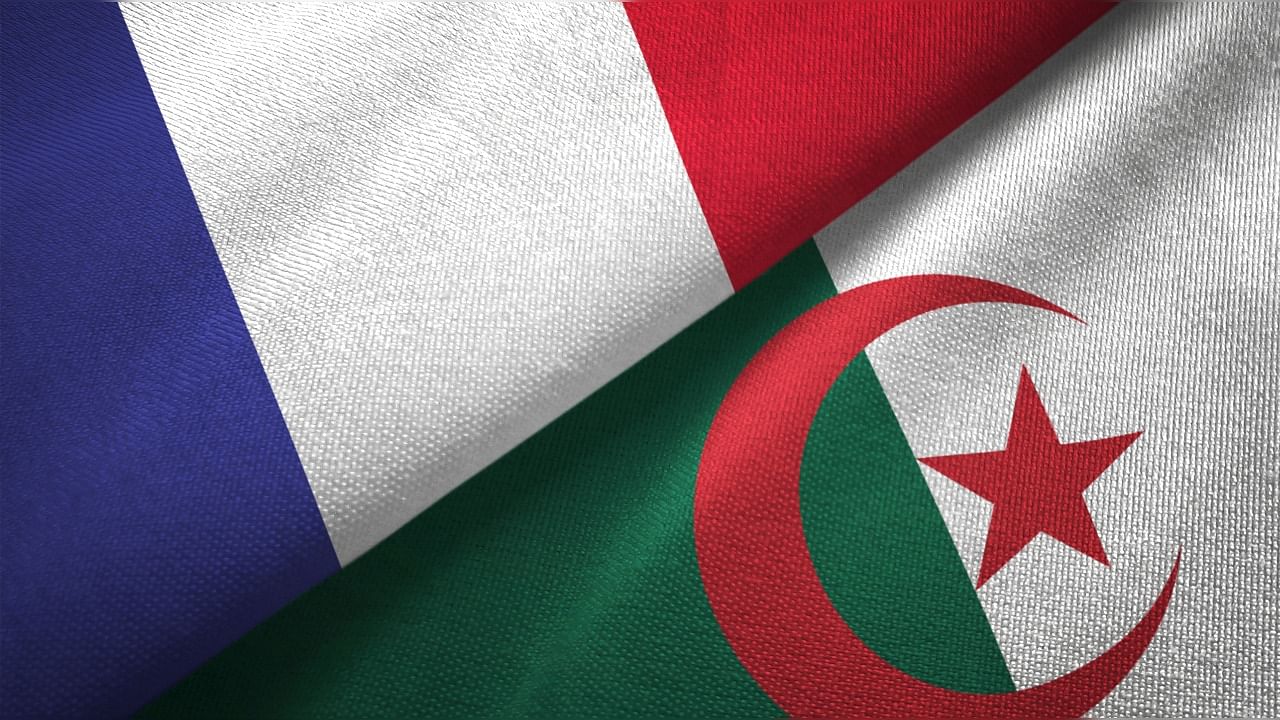
Relations between Algeria and former colonial power France have hit a new low, with Algiers recalling its ambassador from Paris this week.
On Sunday, Algeria banned French military planes from its airspace, which they cross to fly to the Sahel region where troops are helping to battle jihadist insurgents, the French army said.
Here's an overview of what led to these tensions, just months ahead of the 60th anniversary of Algeria's independence from France.
Algeria recalled its ambassador Mohamed Antar-Daoud from Paris over what the presidency late Saturday said were "irresponsible" remarks and "inadmissible interference" by French President Emmanuel Macron.
The remarks to French daily Le Monde were widely picked up by Algerian media, and came during a meeting Thursday between Macron and descendents of figures from the 1954-1962 war of independence.
Macron said Algeria was ruled by a "political-military system", Le Monde said.
He also reportedly criticised what he called the "official history" which Algeria had written for itself, saying it was "not based on truths" but "on a discourse of hatred towards France".
Macron said a French decision announced days ago to drastically slash the number of visas it grants to citizens of Algeria, Morocco and Tunisia would have no impact on students or business figures.
The move -- denounced by Algeria -- was aimed at "annoying people in leadership", he said.
He also irked Algiers by describing President Abdelmedjid Tebboune as being "trapped in a system which is very tough".
And he mocked the way Algerians consider France as the only colonial power to have ruled them, while forgetting Ottoman domination over North Africa between the 16th and 17th centuries.
A row erupted in February 2005 after the French parliament adopted a law recognising "the positive role of colonisation".
Although it was later abrogated, it led to the cancelation of a treaty of friendship between Algeria and France.
Tensions rose again in May 2020 after French public media broadcast a documentary about the Hirak pro-democracy protest movement which had forced Tebboune's veteran predecessor Abdelaziz Bouteflika from power the previous year.
At the time Algeria also recalled its ambassador for consultations.
And in April this year, French Prime Minister Jean Castex scrapped a visit to Algiers after it had criticised the "small" size of his delegation, informed sources told AFP.
Before Macron's latest comments -- which Algerian media slammed as "vitriolic" -- relations between France and its former colony were not so bad.
In November 2020, Macron had praised Tebboune's governance in an interview with the pan-African weekly news magazine Jeune Afrique.
But he sparked the fury of Algerian civil society and expatriates when he added that he would "do everything possible" to help Tebboune deal with the Hirak protest movement.
Earlier that year, however, France took two steps that were highly appreciated by Algeria.
In July 2020, Paris returned to Algeria the skulls of 24 resistance fighters who had been shot and decapitated in the early years of the French occupation.
Previously, in March, Macron had admitted that French soldiers had murdered top Algerian lawyer Ali Boumendjel in 1957 and then covered up his death.
Algeria media on Saturday also noted that Macron had declared Algeria's colonisation a "crime against humanity" during his election campaign while visiting Algiers.
In 2020, Algeria and France agreed to task experts to draft a report aimed at forging "reconciliation".
In January, French historian Benjamin Stora handed to Macron his report, which made a series of recommendations including "symbolic acts" or reconciliation and the creation a "memory and truth commission".
However, the French presidency said there was "no question of showing repentance" or of "presenting an apology" for France's colonial past.
Algiers rejected the Stora report saying it was "not objective" and failed to proved an "official recognition by France of war crimes and crimes against humanity, perpetrated during the 130 years of the occupation of Algeria".
In his report Stora said France and Algiers were locked in a "never-ending memory war" and competing claims of victimisation.
Watch latest videos by DH here: